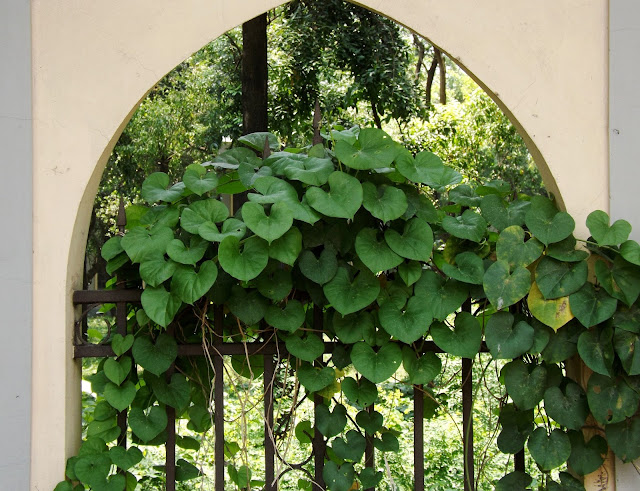Kochu or Taro, Colocasia esculenta
Kochu or Taro (Colocasia esculenta, family: Araceae) is a perennial aquatic herb with stolon and rhizome, attaining a height of 1.5 m. It is found by water or standing in water. The fast-growing plant is found almost everywhere in Bangladesh. Although it is originated mainly in Southeast Asia, it has gradually become naturalized in the tropical world. It is one the oldest cultivated crops in Asia. The whole part of the plant, like leaf, stem, petiole, rhizome, stolon--everything can be eaten as vegetable.
Other names: Mukhi kochu, Gura kochu, Kuri kochu, Chhora kochu, Duli kochu, Binni kochu.
Neumerous small flowers are clustered on spadix inflorescence, covered with giant bract leaf, spathe; the spadix is three-fifths of the spathe. In initial stage the inflorescence is fully covered with spathe, later the spathe loosens to expose the inflorescence. Spathe is bright yellow or orange and spadix is yellowish. Flowering occurs in the rainy season.
Kachur mukhi (Bangla) or corms of the plant, which is a modified stem, is eaten as a delicious vegetable in the country. The size and shapes of corms are different. These are usually round or elongated, painted with light and deep brown color. These are consumed as vegetable. The herb is rich in starch, carbs, sugar and vitamins B and C. Its juice is laxative and used in hemorrhoids. It is used in Hornet bite and Scorpion bite. It is also used in arthritis, asthma, diarrhoea, skin disorder and many other diseases.
The plant usually itchy throat when eaten. However, it does not happen by cooking in a special way. It can be planted to enhance the beauty of the water garden. There are many references to it in Bengali literature. Usually the Bengalees bring the topic of this plant to ridicule someone.







Comments
Post a Comment